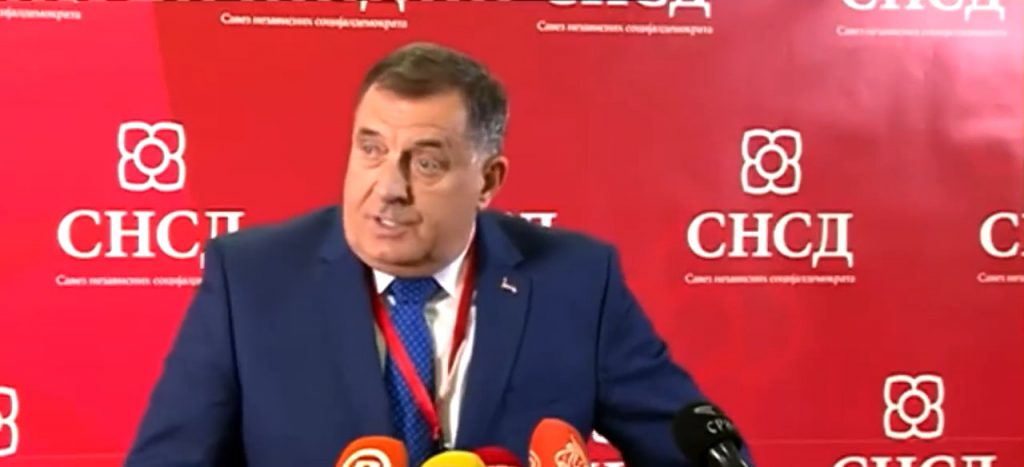Ruling Party of Bosnia’s Serb Entity Threatens To Reform Bosnian Serb Army
Milorad Dodik, the Serb member of the Presidency of Bosnia and Herzegovinia, announced today that the political party he leads, the Alliance of Independent Social Democrats (better known as the SNSD, using its Serbian abbreviation), had adopted a resolution to initiate the reformation of the Bosnian Serb Army, the Bosnian-war era secessionist Serb military force found guilty of genocide by the International Court of Justice in 2007.
The announcement follows threats by Dodik earlier this month that the Republika Srpska would be withdrawing its representatives from Bosnia’s joint armed forces, followed by the top judicial body and then the tax administration, in response to the passage of a law banning genocide denial. While the pro-secessionist leader has repeatedly made such threats since his rise to power in 2006, he has since followed up on the threats by subsequently claiming that the Bosnian Serb entity would secede should he be sanctioned, and that Serbia and Russia would back him up in a secession attempt.
The director of the Srebrenica Memorial Center, Emir Suljagić said on Twitter in response to Dodik’s announcement that “This is now a security crisis of the first order. Peace in Bosnia is at stake. Time for talk is over.” He continued:
“This is an existential threat. Bosniaks and other Bosnian victims of the BSA from the nineties can not possibly be asked to coexist, let alone coexist peacefully, with an institution dedicated solely to and with a bloody record of their physical destruction.”
Dodik’s announcement also follows a visit by Claudio Graziano, the European Union’s most senior military official to Bosnia, where he visited the headquarters of Bosnia’s joint military. The visit was intended to highlight the European Union’s commitment to the joint military in the face of the threats, saying at a press conference that “I bring a message from all the 27 that there is support for the armed forces”.
Regional observers have long warned that decreasing European Union and United States attention to the Balkans risked giving Dodik and other secessionist actors free rein to pursue their goals, with political scientist Jasmin Mujanović warning that an October 20, RS resolution to form its own drug procurement agency was “secession in all but name”. He added at the time: “if Dodik and his masters in Moscow and Belgrade feel the response here is weak – which I fear it is likely to be – they’re going to escalate even further.”

